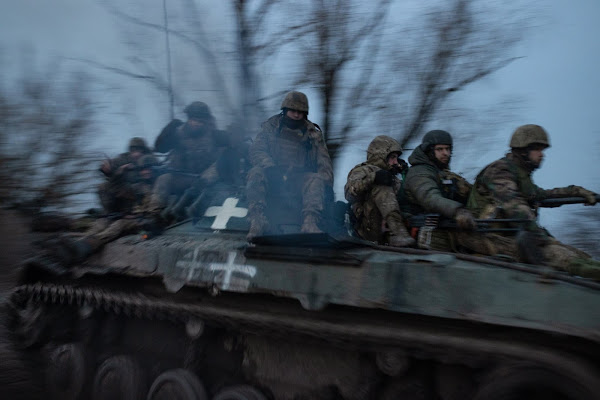Poland and the Baltic states have driven the moral argument to support Ukraine, filling a near-vacuum early in the war, when Europe’s traditional leaders, France and Germany, appeared paralyzed. But the war has also brought new urgency and energy for the enlargement of the European Union to the Western Balkans and beyond, with offers of candidacy for Ukraine and Moldova.
Vocal pressure from Eastern and Central Europe was crucial to the decisions this week, after months of wrangling and resistance, to give Western tanks to Ukraine. On Wednesday, Mr. Scholz announced that his country would supply some of its Leopard 2 tanks and allow other countries to send theirs, and President Biden said he would send American Abrams tanks, which gave Mr. Scholz the political cover he wanted.
The war is also accelerating what Mr. Scholz implied: that the balance of power in Europe is shifting, too, along with its center, away from “Old Europe”, which valued and cultivated its ties to Moscow, to the newer members to the east and north, with their raw memories of Soviet occupation and their reluctance to cede chunks of their reestablished sovereignty to Brussels.
Steven Erlanger
There has been some pushback against this piece on Twitter – and with good reason. Looking past the dubious ‘moral’ argument and the legitimate security concerns on the Eastern flank, real power still lies in a solid economic base, which neither Poland, nor the Baltic states have. Central and eastern Europe are receiving considerable contributions from the European Union, in turn financed by… Germany and France! I struggle to imagine how Poland would pay for its supposed massive military while also sustaining economic growth without European funds.
Also note: if/when these countries do join the EU it will massively reduce & dilute the benefits of membership for countries like Poland, as their income gap & vast agricultural lands mean CAP & cohesion funds will largely be diverted to them 11/
— Mujtaba Rahman (@Mij_Europe) February 1, 2023
Poland and some of its allies also fail to punch their weight diplomatically. Small countries like Denmark and Ireland, and even some bigger ones like the Netherlands, can make up for their size by carefully crafting alliances and generating new ideas for the EU. Poland, notably, is not interested in this.
The EconomistOn any topic other than Ukraine, they don’t even pretend to care, says one EU diplomat.
In fact, the recent back-and-forth around supplying tanks to Ukraine was a fine example of why Poland is not ready to be a security leader: before Germany decided to supply tanks and allow other countries to supply German-made tanks, the Poland government was all over the news pushing for this decision and pointing fingers at Germany for supposedly stalling the process. Afterwards, Poland called for a reimbursement from the European Peace Facility for delivering Leos – perfectly happy to let others foot their bills while incessantly bragging about their support of Ukraine. Moreover, reports from Germany claim that despite receiving clearance most other countries are not willing or ready to deliver tanks – a notable example Finland, whose Prime Minister also likes to make grand statements without delivering much. Again, leadership is established by concrete actions, not empty words.

There is no question that politically, and even in terms of cultural values, Central and Eastern European countries
have pulled Europe to the right, Mr. Kundnani said.There is a resurgence of neoconservatism against the backdrop of Ukraine. The danger is that it splits Europe rather than uniting it.But the power of Brussels is based on economies and population sizes, he said, so Europe’s center of gravity remains in the West. For the newly assertive countries in the east, he said,
I’m not convinced that confidence and the high moral ground are enough to accomplish big things in Brussels.
Ultimately, this article reads like the default view of an American of the European Union: we don’t understand how it works, but regardless the constituent countries should just align with whatever foreign policy America currently pursues. That was roughly the role of the UK before Brexit, to repeat US talking points and obstruct European initiatives – and now America has turned to Poland to fill that gap.
"Why doesn't this foreign country see its interests in the way that I do, and how can we make it?" is a hardy perennial for DC think tankers.
— Justin Logan (@JustinTLogan) January 20, 2023
We saw the same dynamic play out in the early stages of the invasion of Iraq; the same narrative of a ‘New Europe’ closely aligned with US interests, and poised to gain influence over ‘Old Europe’, supposedly out of touch with current realities. The author betrays his biases further by referencing a reluctance to cede sovereignty to Brussels – a popular theme of Brexit. Not quite sure we should be celebrating a swing to the right in Europe, considering the history of the past century…
Post a Comment